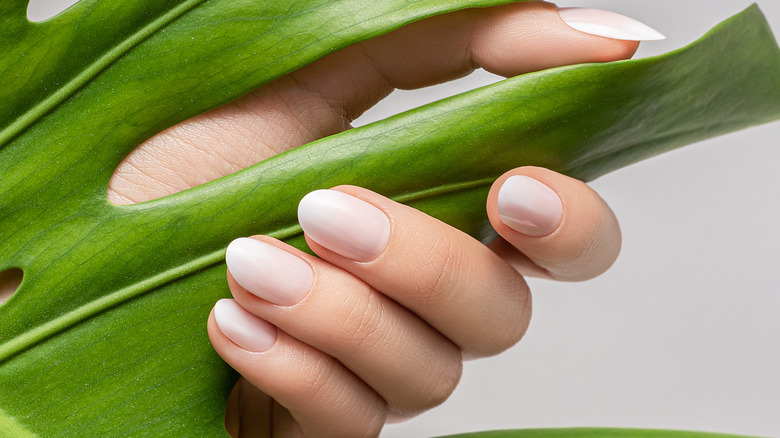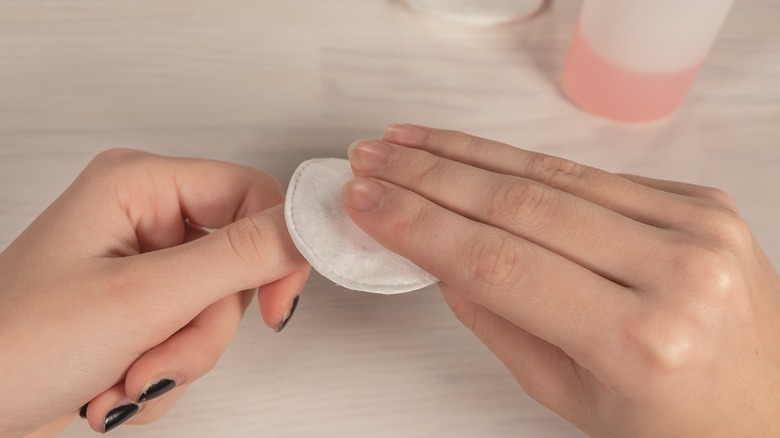How To Keep Your Nail Bed Healthy
We may receive a commission on purchases made from links.
Getting manicures is a great way to show off your pretty nails. There are tons of hand creams in the market to keep your hands soft and moisturized, but do you know how to take care of your nail beds? The nail bed is the pink, soft tissue underneath the hard part of your nail, which is called the nail plate (via Healthline). Some people have shorter nail beds, but you can make them appear longer by growing out your nails and pushing back your cuticles, which is commonplace when getting a salon manicure.
According to Verywell Health, the nail bed is also called the sterile matrix, and it contains blood vessels, nerves, and melanocytes, which produce melanin. If your nails are healthy, the nail bed will be smooth; otherwise, the nail can crack or split and develop ridges, which are all signs of unhealthy nails. According to the Mayo Clinic, you should consult a physician if you notice abnormal nail conditions like significant changes in nail color, change in your nail shape, thickening or thinning of the nails, and bleeding and swelling in areas around your nails. The size and shape of your nail bed is based on genetics, but some other factors that may make your nail beds appear shorter are nail injuries, nail biting, and fungal infections, which can separate your nail bed from the nail plate, per Healthline.
Follow these tips and tricks for healthier nail beds
One of the most important ways to take care of your nails — and one that can directly affect your nail bed — is not biting or tearing them. According to Shuman Podiatry, these can cause cracks for bacterial infections to nestle into. Though biting your nails isn't dangerous long-term, it is pretty unsanitary, can damage the skin around your nails, and could spread the germs from your fingers to your mouth.
Fingernails are made up of a protein called keratin, so nutritional deficiencies may cause your nails to become brittle and weak, affecting the nail bed. The Mayo Clinic recommends speaking to your doctor about adding a biotin supplement to your diet, as it may help strengthen your nails. Furthermore, Harvard Health Blog strongly recommends against using acetone-based nail polishes, as they can be harsh and damage your nail bed. Any kind of manicure removal that requires you to soak your fingers in acetone should be avoided as much as possible.
Last but not least, invest in cuticle cream or oil to keep your nails and nail bed healthy. "Put oil on, and then cream to keep the oil in and penetrate [the skin]," celebrity nail artist Elle told Good Housekeeping. Their recommendation is Onyx Professional Hard as Hoof Nail Strengthening Cream with vitamins A, C, D, and E, along with coconut and jojoba oil. Regular use of cuticle cream can generally help keep the nail bed healthy.

